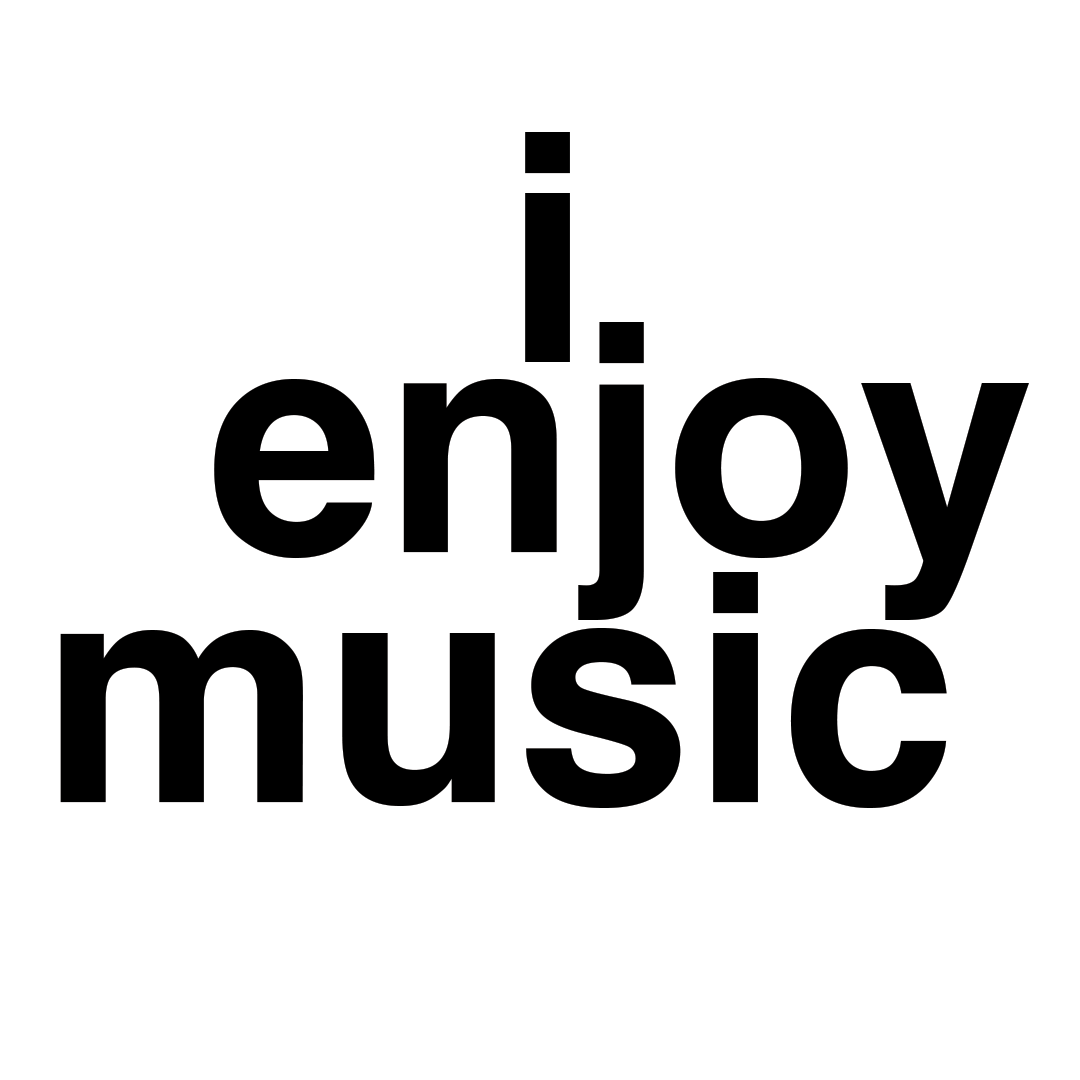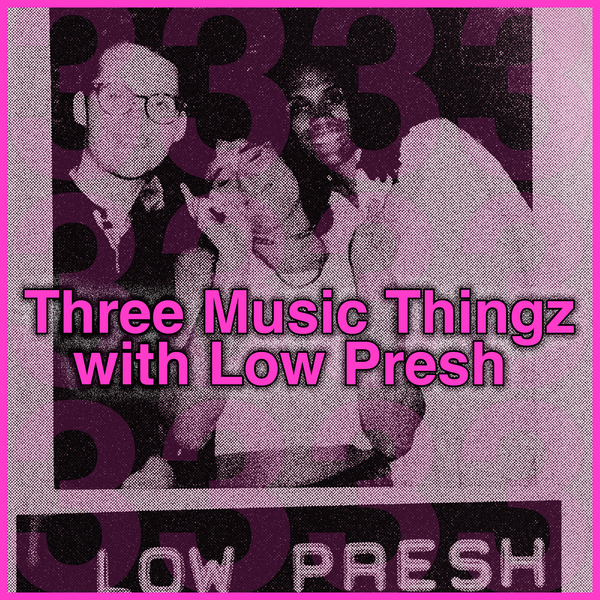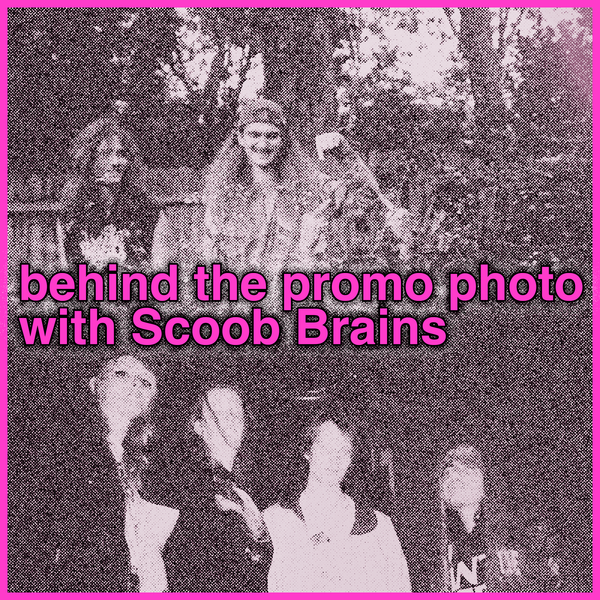Three Music Thingz with Super Cassette
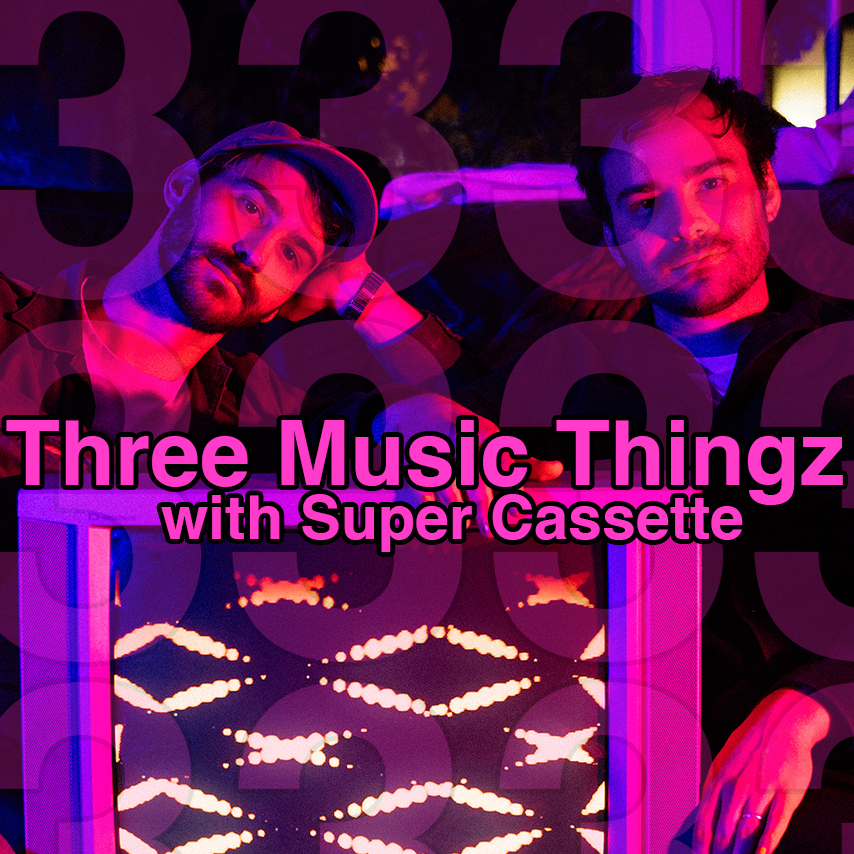
Well well well, if it isn't another edition of Three Music Thingz, where I ask musicians for three thingz that are essential to their music-making.
Today we've got Max Gerlock, who plays in Super Cassette, out of Oakland California. Super Cassette makes earnest, lively indie rock with classic garage rock song structures and a touch of vocal theatricality. Max has a computer science degree and a background in tech, which they draw on for musical inspiration in songs like the anti-work "9 to 5"; somewhat ironically, the soul-sucking Big Tech vortex actually worked in the band's favor in 2020, when their cheekily devilish power pop single "Be Gay, Do Drugs, Hail Satan" went viral on Spotify.
(The song's YouTube video is full of elated listeners commenting things like "My Alexa started playing this randomly at 3 in the morning, and now it’s one of my all time fav songs.")
I'm currently bumping Super Cassette's latest release, Continue?, on a compact disc and admiring the contrast between the the smile-like-you-mean-it, ebullient instrumentation and the lyrical content, which tends toward the disquieting introspection you might land on in the single-digit morning hours. "I don’t wanna die, but I don’t wanna be alive / I don’t wanna be alive, but I don’t wanna die," sings Max with polished, expansive vibrato on "Bones." Later on the dance-y "Islands," they stake a more confident existential claim: "A man’s not a point in a time but a line through his life."
Big questions, big answers, big tunes...what are the thingz that Super Cassette needs for their music to exist? Let's hear from Max...
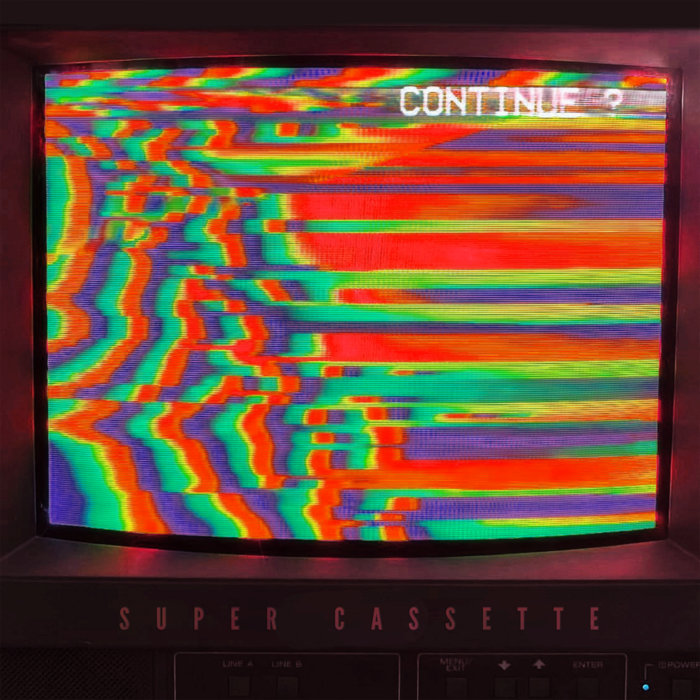
- Connection With Others
I’ll be honest. I can be a pretty depressive person. Left alone for too long, my mind can deteriorate into a solipsistic swirl of negative self-talk and isolation. The only thing that consistently pulls me out of this is seeing other people. People I love, people I don’t even know yet—I tend to be happiest when I’m making others laugh or creating what I hope to be a joyous environment for them. More cynically: I have low self-esteem and tend to forget my own self-worth when I’m not seeing it reflected off of other people.
Underlying much of my ambition to create music is some spiritual gesture toward other human souls. Sometimes that gesture is toward some collective spirit, and sometimes it’s the people I lock eyes with at the front row of a show.
There are tremendous joys in this life, and, to me, relatively few of them are solitary. When a guitar is strummed or a record is played, I like to think there is some communion of spirits between the listener and performer. There is something sacred in the transmission of that emotion, intellect, and creativity through the medium of music, and when I write or perform music I think that is what I’m chasing. - The Joy Of Craft, Technicality, and Refinement
When I first started brainstorming ideas for this article I found myself listing things like “chord progressions”, “my DAW”, “lyrical meter”, and “music theory”. I realized that many of the indispensable aspects of my musical creativity can be generalized into this: I love the technical aspects of the craft of music almost as much as the emotive ones.
Don’t get me wrong, I think the heart of any good song is instinct — some unplanned emotional impulse that through its unconscious expression reflects genuinely your point of view, emotional state, or way of thinking. But to me music is part poetry and part puzzle. You need to figure out what chords go with the melody. You need to change a word so that the stresses of the syllables fit better. You have to re-record the guitar part on a different pickup so the low-mids don’t clash with the bass.
There is something beautiful and almost noble about taking the time to refine these details and to really craft a song. The bonus? The more time you spend consciously improving your music, the more you can learn to intuitively apply those concepts in real-time, as you create. Guitar voicings you didn’t know; EQ settings that took a while to discover; a new way of micing the drums. Through years of experimentation, failure, and conscious attention to technical details, they become a part of your unconscious creative expression. - My Guitar
Despite the dysfunction and chaos of my upbringing, what roots me in this world is the profound love of my family. I am so thoroughly a product of the context and dynamics created by the characters that are my parents and three brothers. For better and for worse, and in my emotional, musical, and poetic sensibilities. So I figured I would choose an object that, in addition to its musical utility, represents that bond.
When I graduated from college, my dad built me an incredible Jazzmaster clone lovingly dubbed the “Dadmaster”. Not only has this guitar imparted a somewhat unique sound to nearly every Super Cassette song, but it’s one of the most sentimentally valuable objects I own. To me it’s an emblem of my father’s love and the love that I have for my entire family. As that guitar’s distinctive jangle rings on our tracks, I think so too does its emotional resonance and personal meaning.
(I should also mention that the only other guitar I use in the band, the Megacaster, was later built together by me and my dad. Further, my brother Nick [though he is on hiatus from playing with Super Cassette] plays a Dad-O-Caster also made by our father).
The Dadmaster is not only a rad guitar, but to me it feels almost like an enchanted object, pulsing with the love of my family. Ultimately it creates a continuity between an anxious southern Californian child and their 30 year-old musical counterpart, who sometimes forgets the profound love that underlies who they are.
Thanks Max! Listen to Continue? here and check out Super Cassette's website. And thanks for reading I Enjoy Music. If you like the blog, tell a friend.
